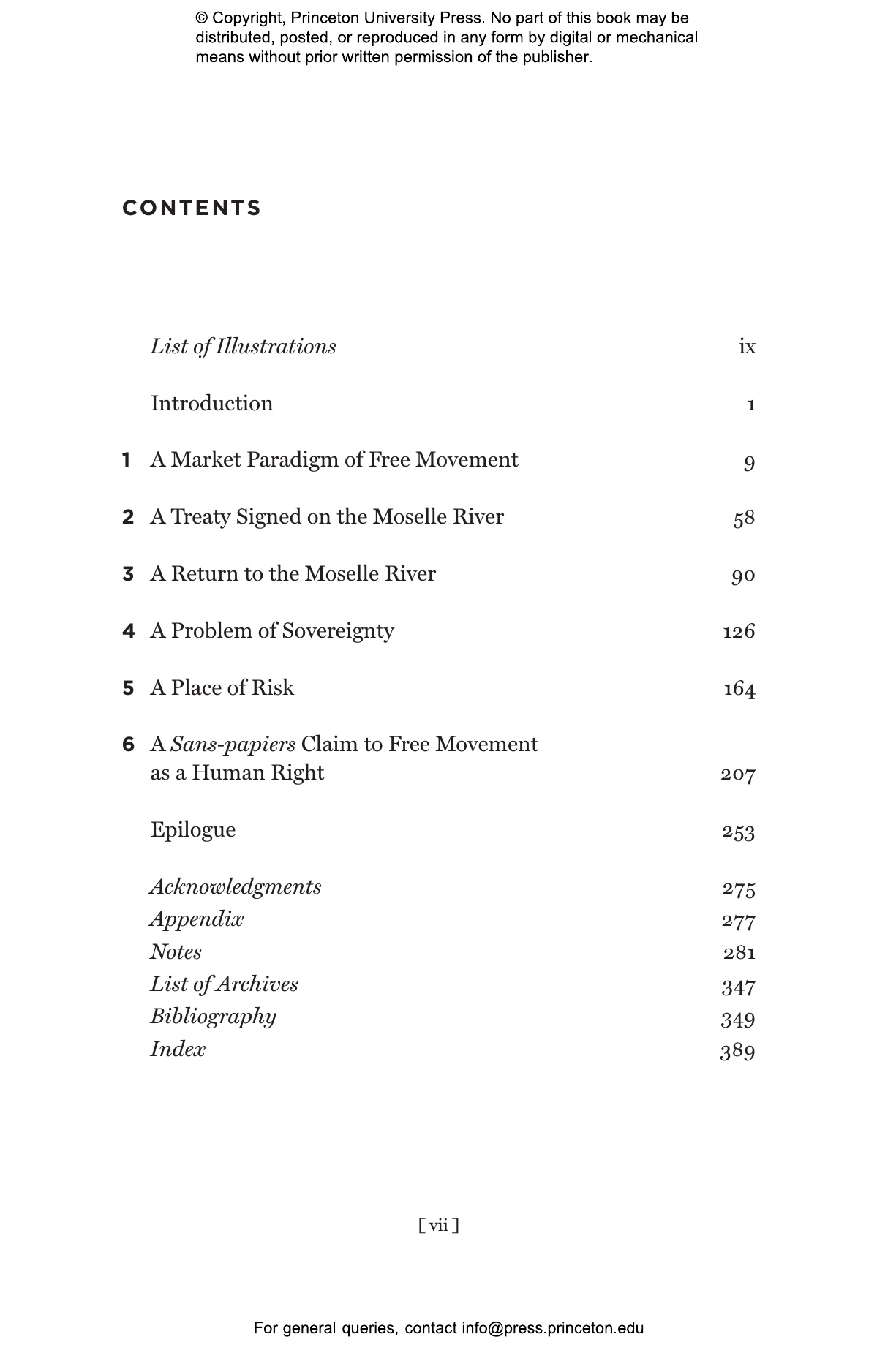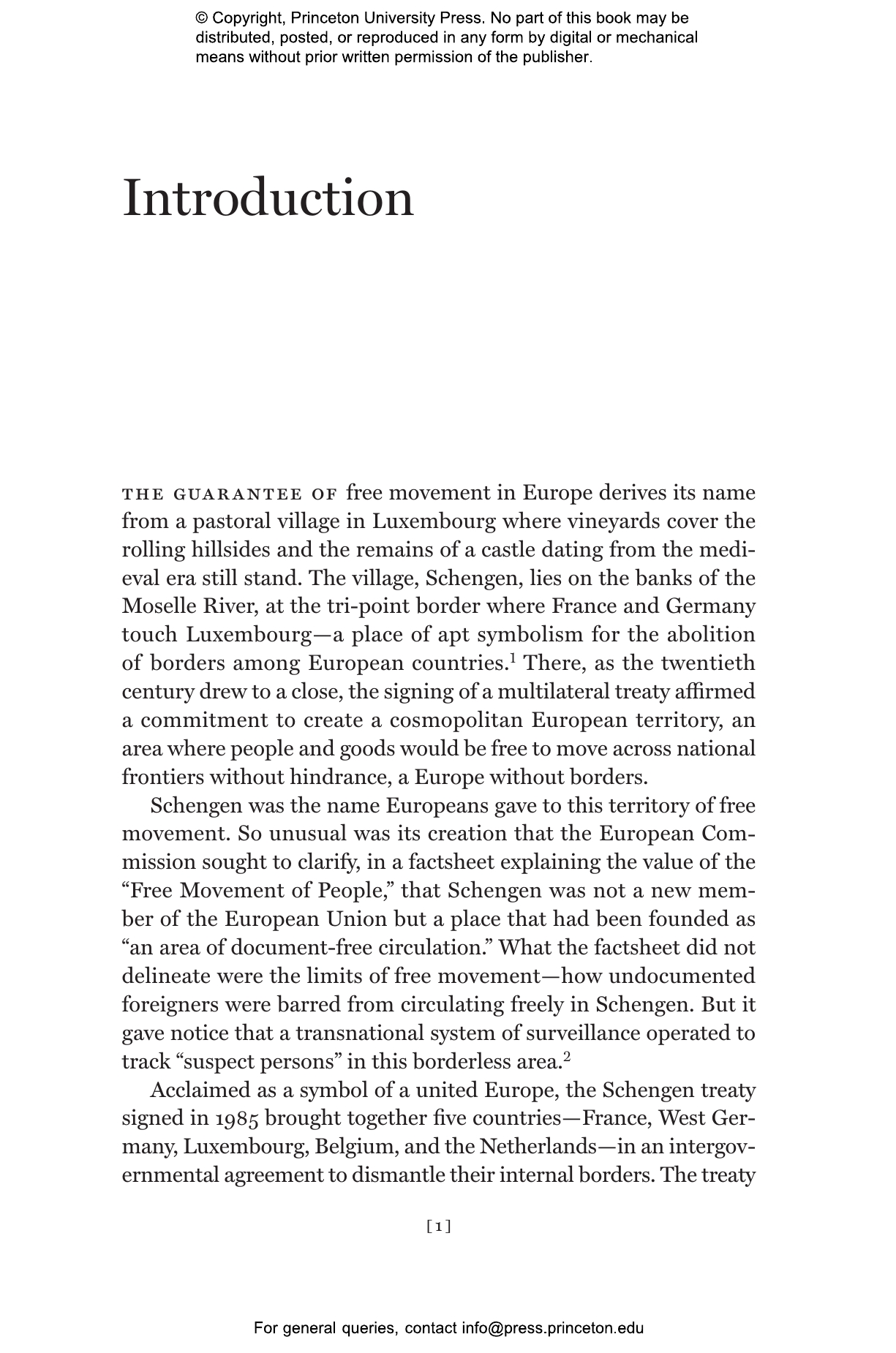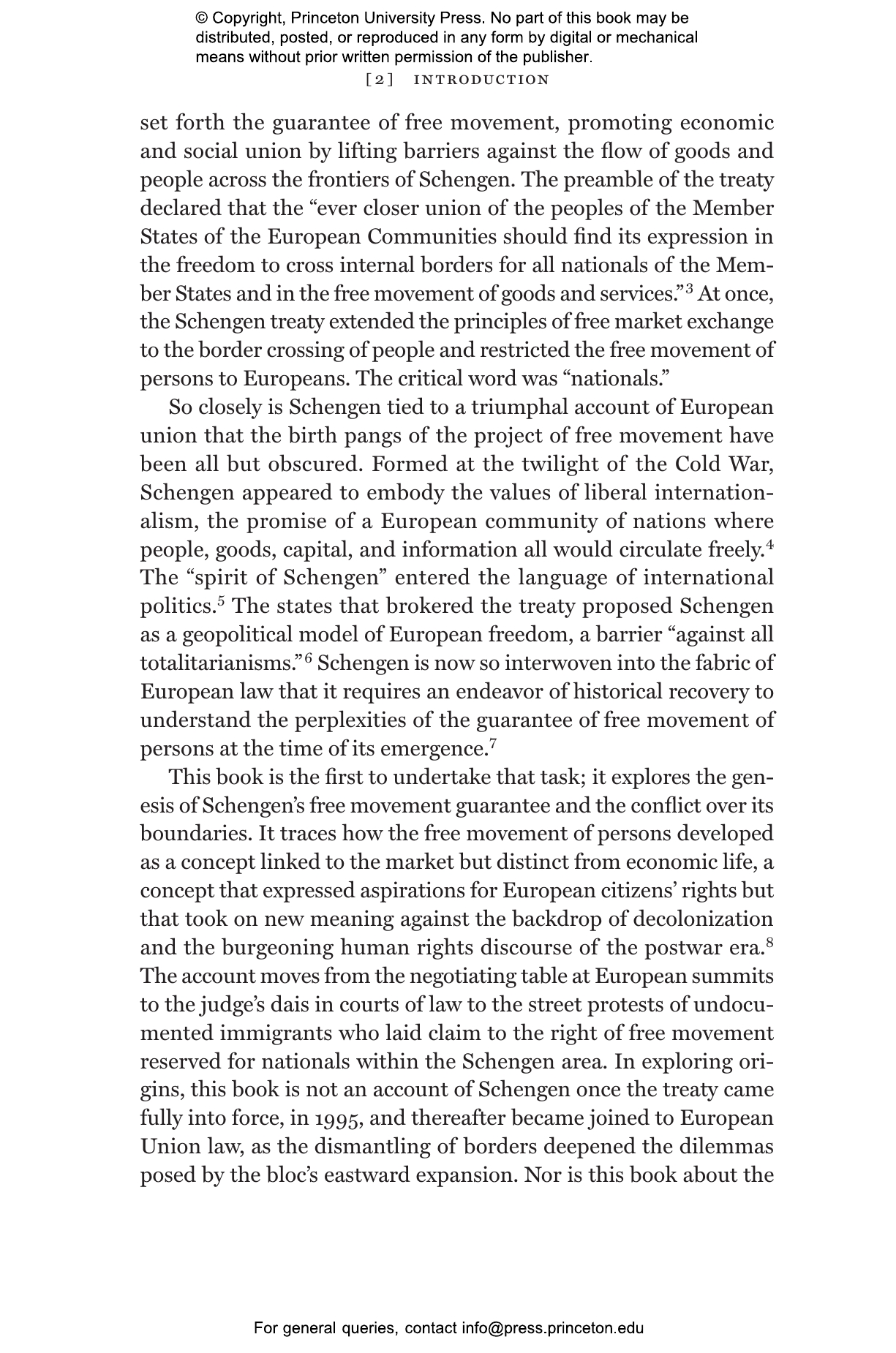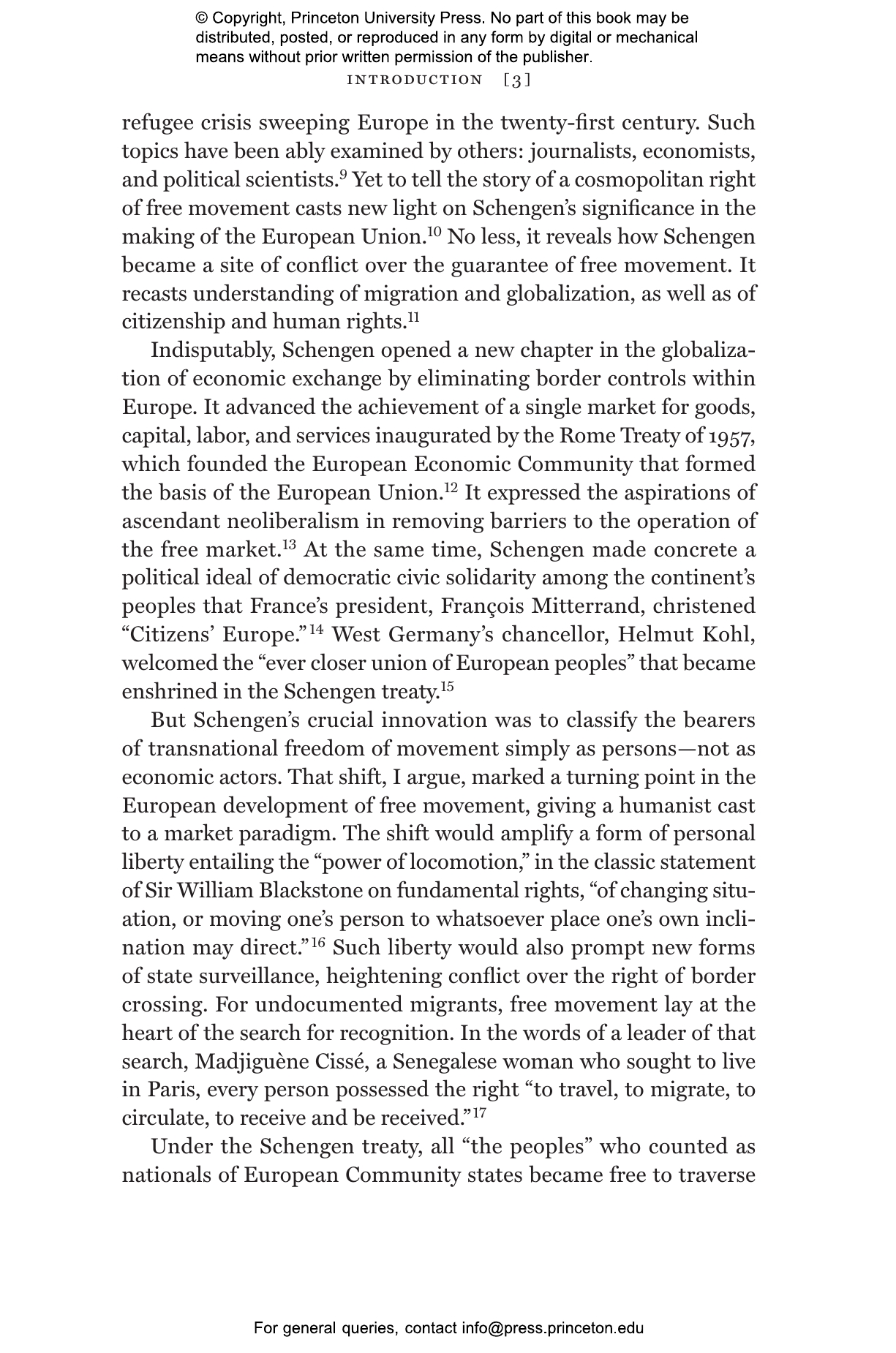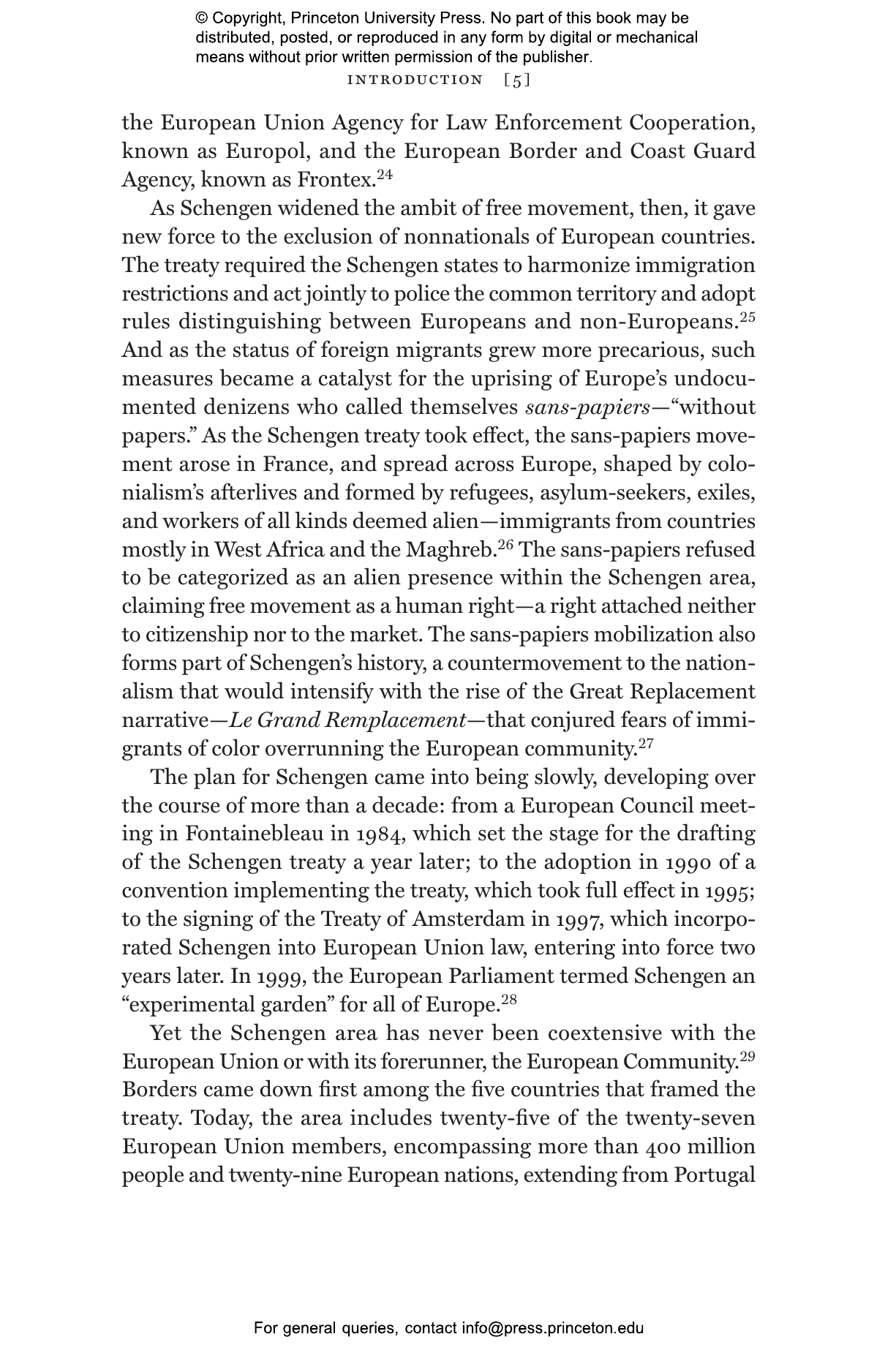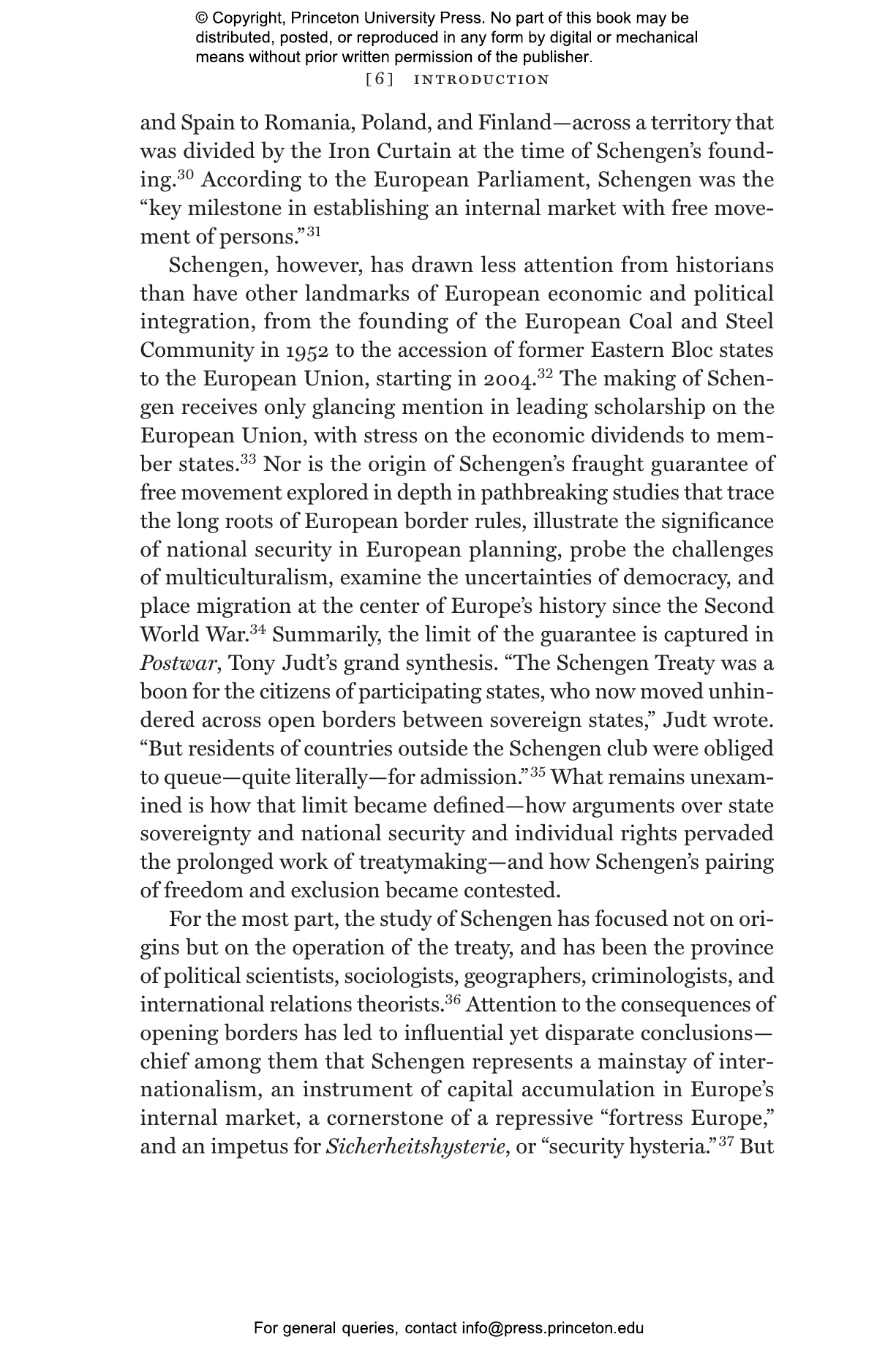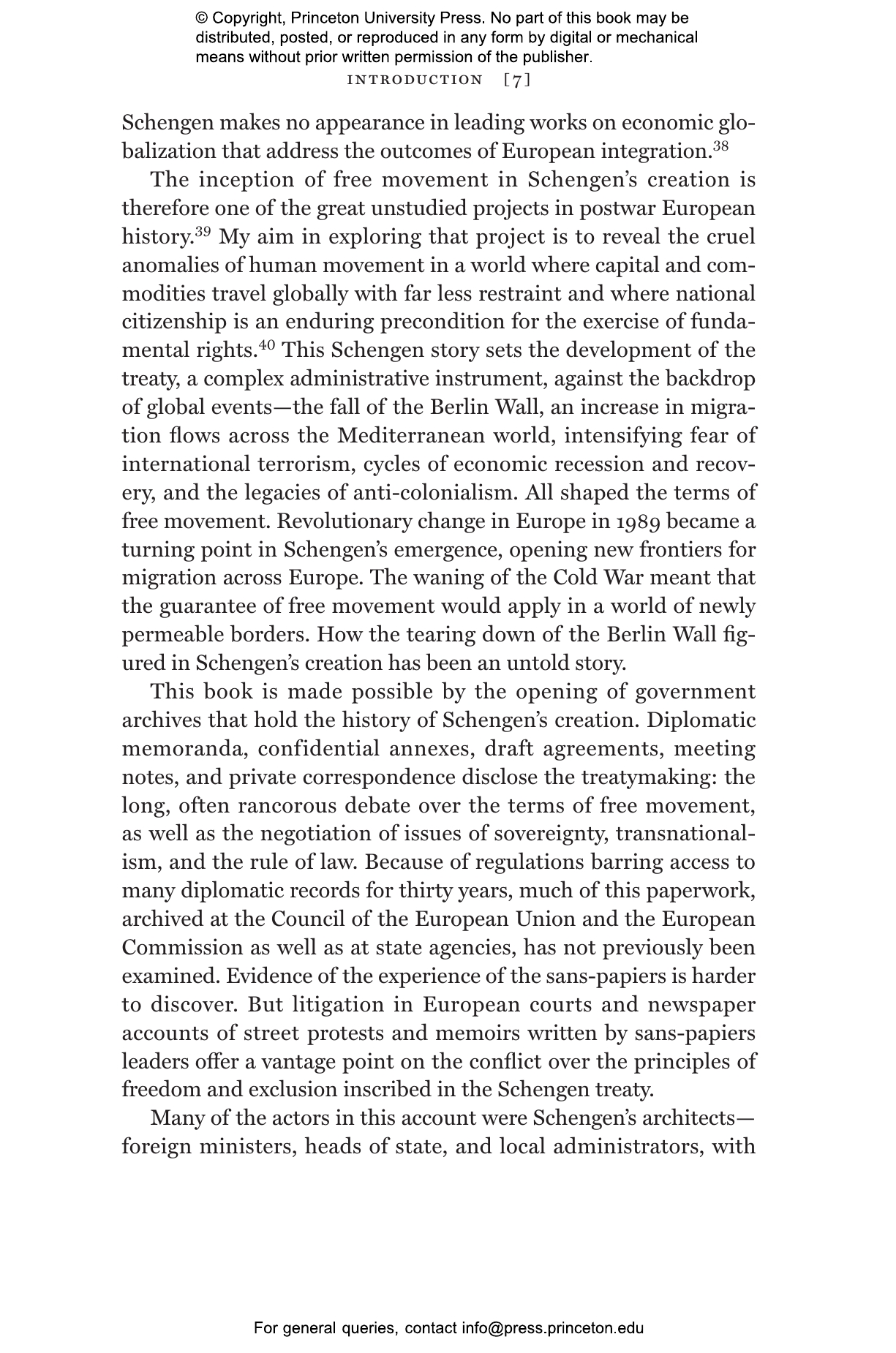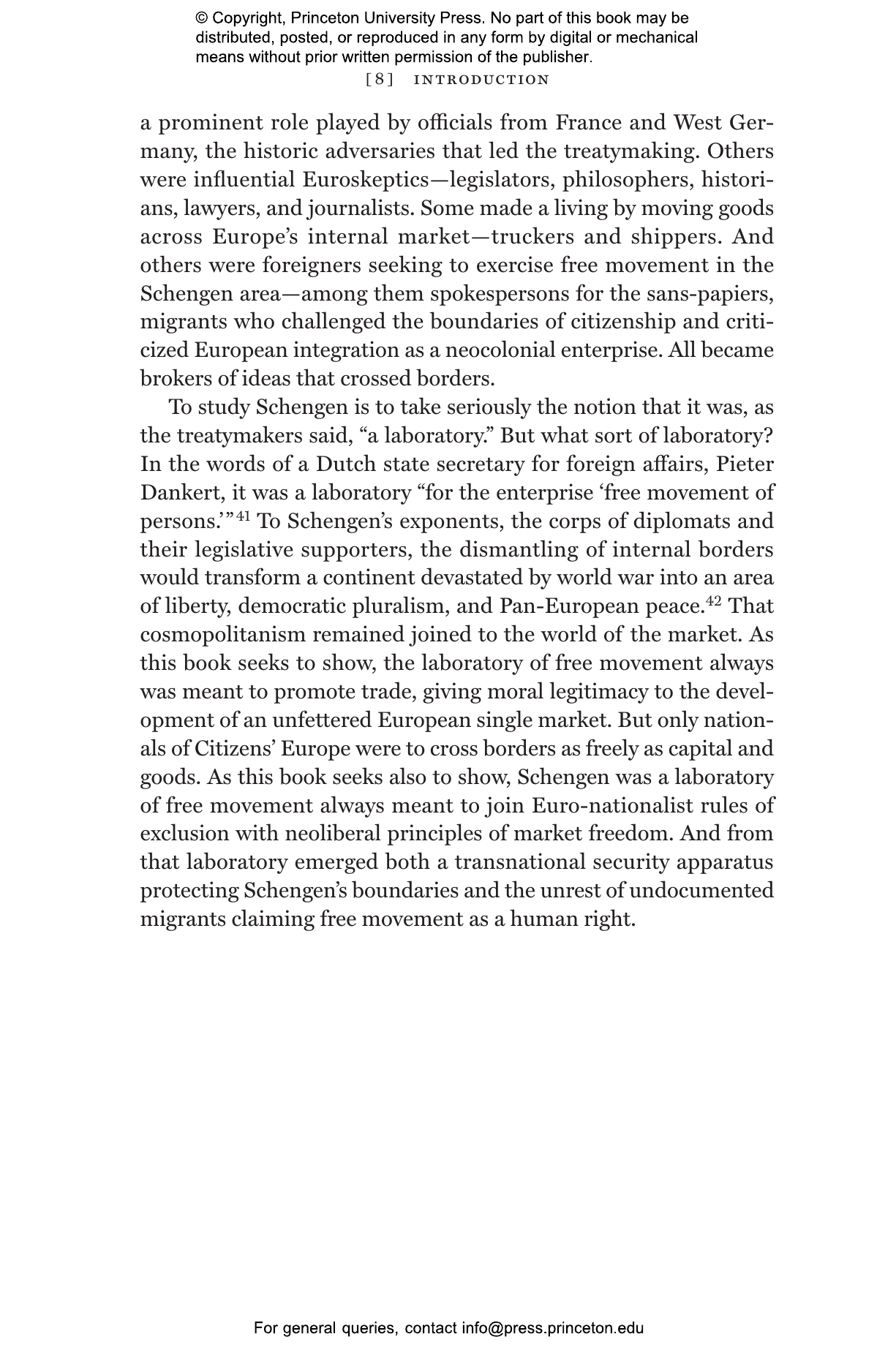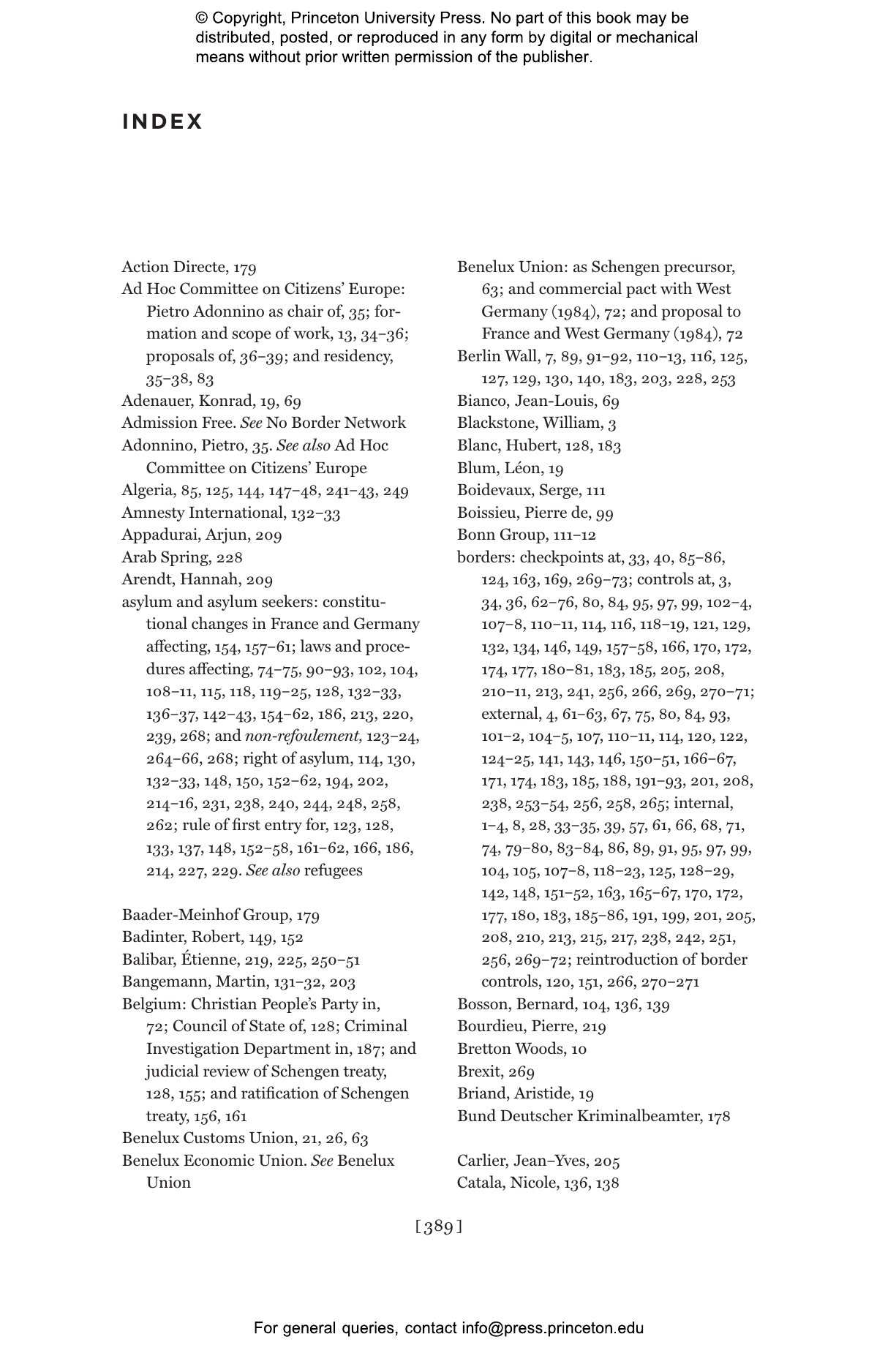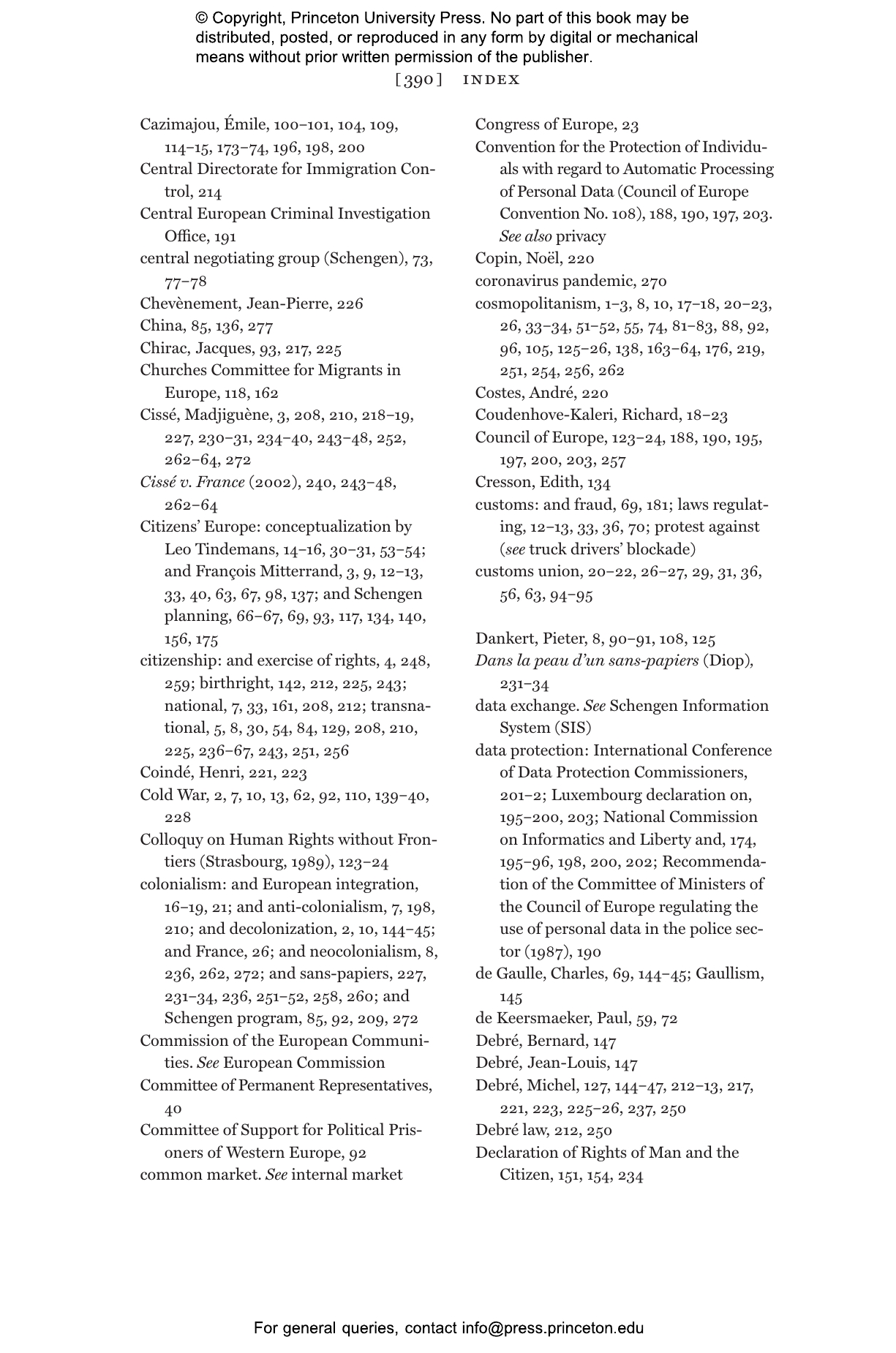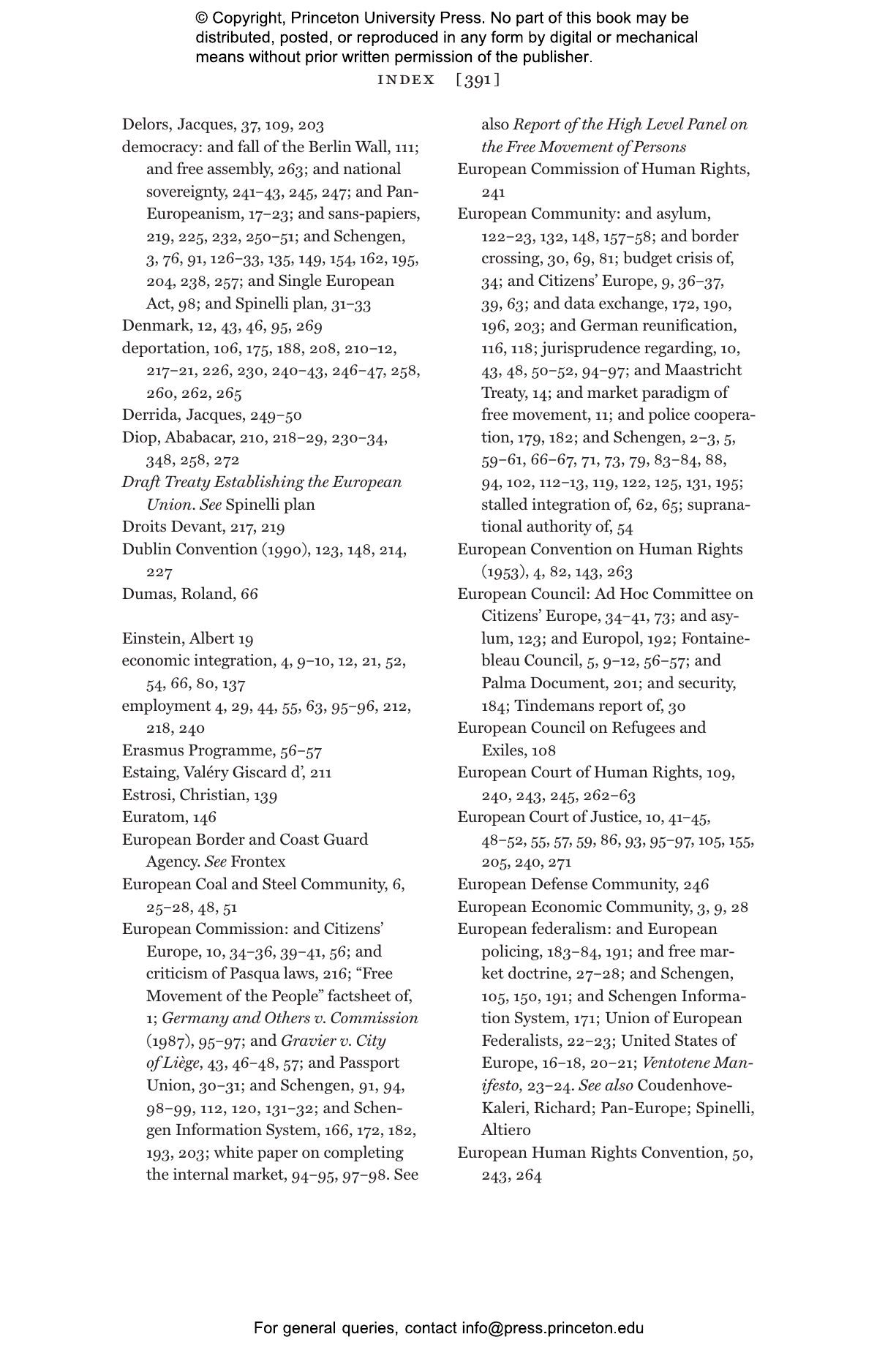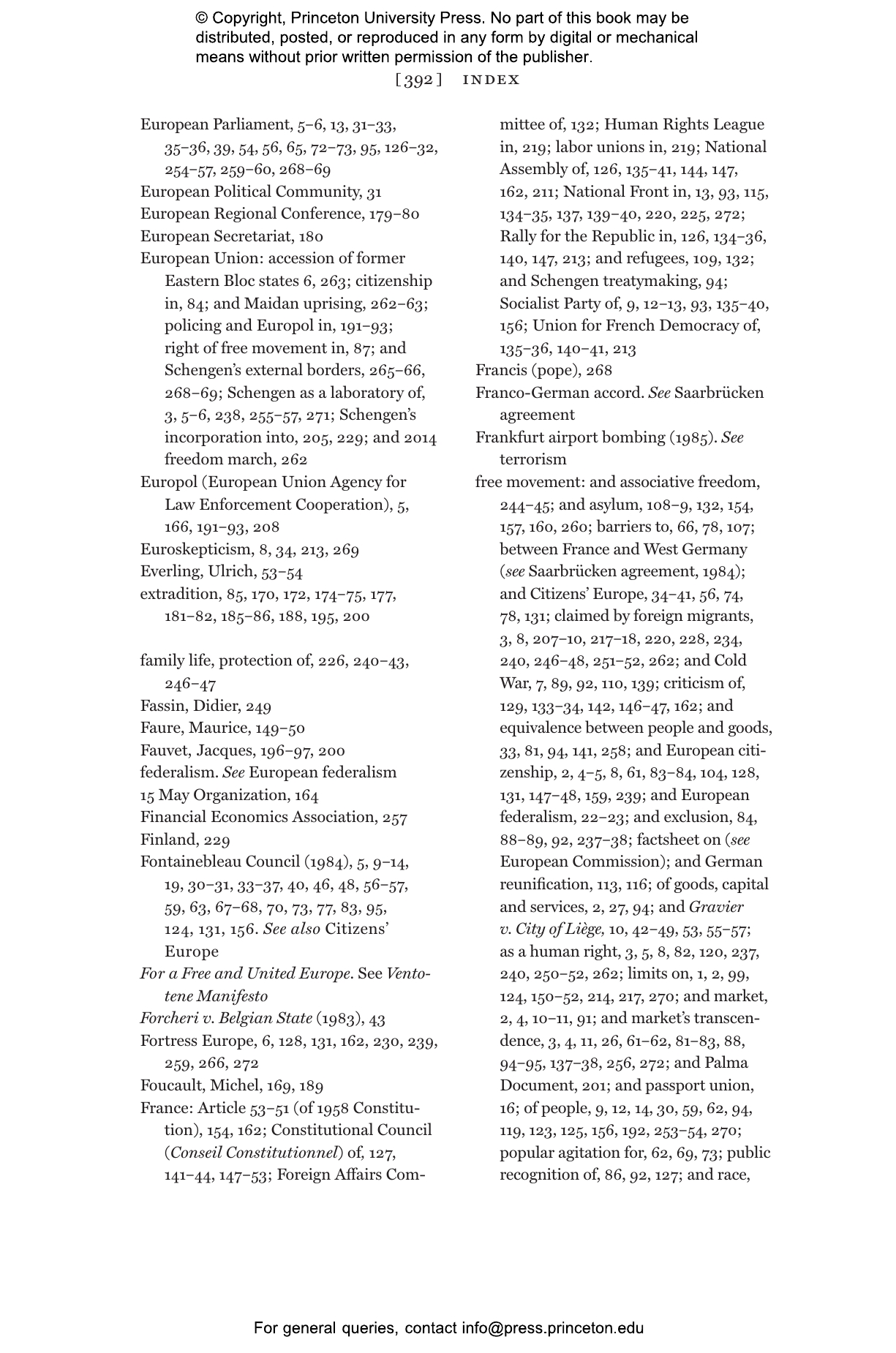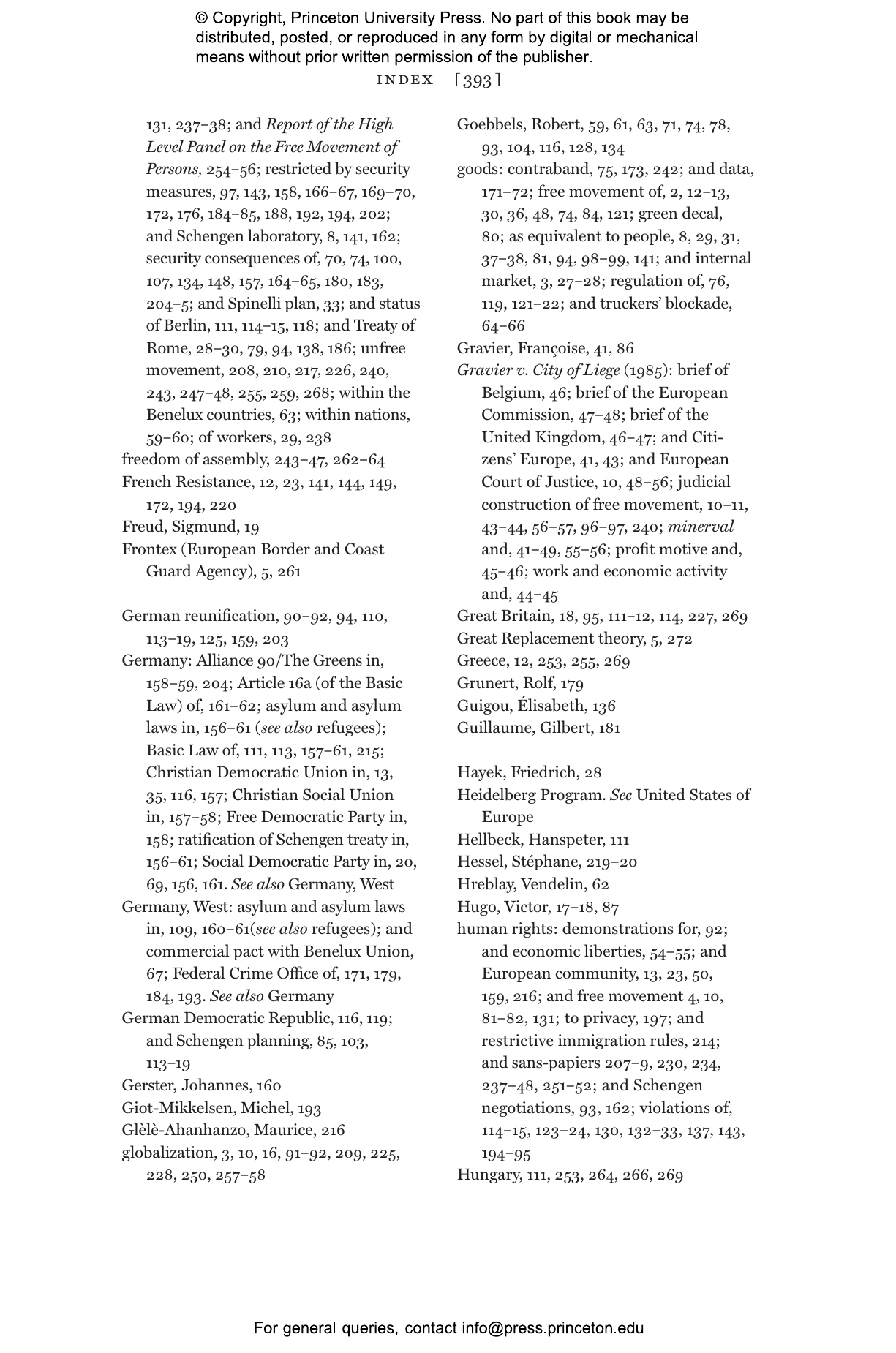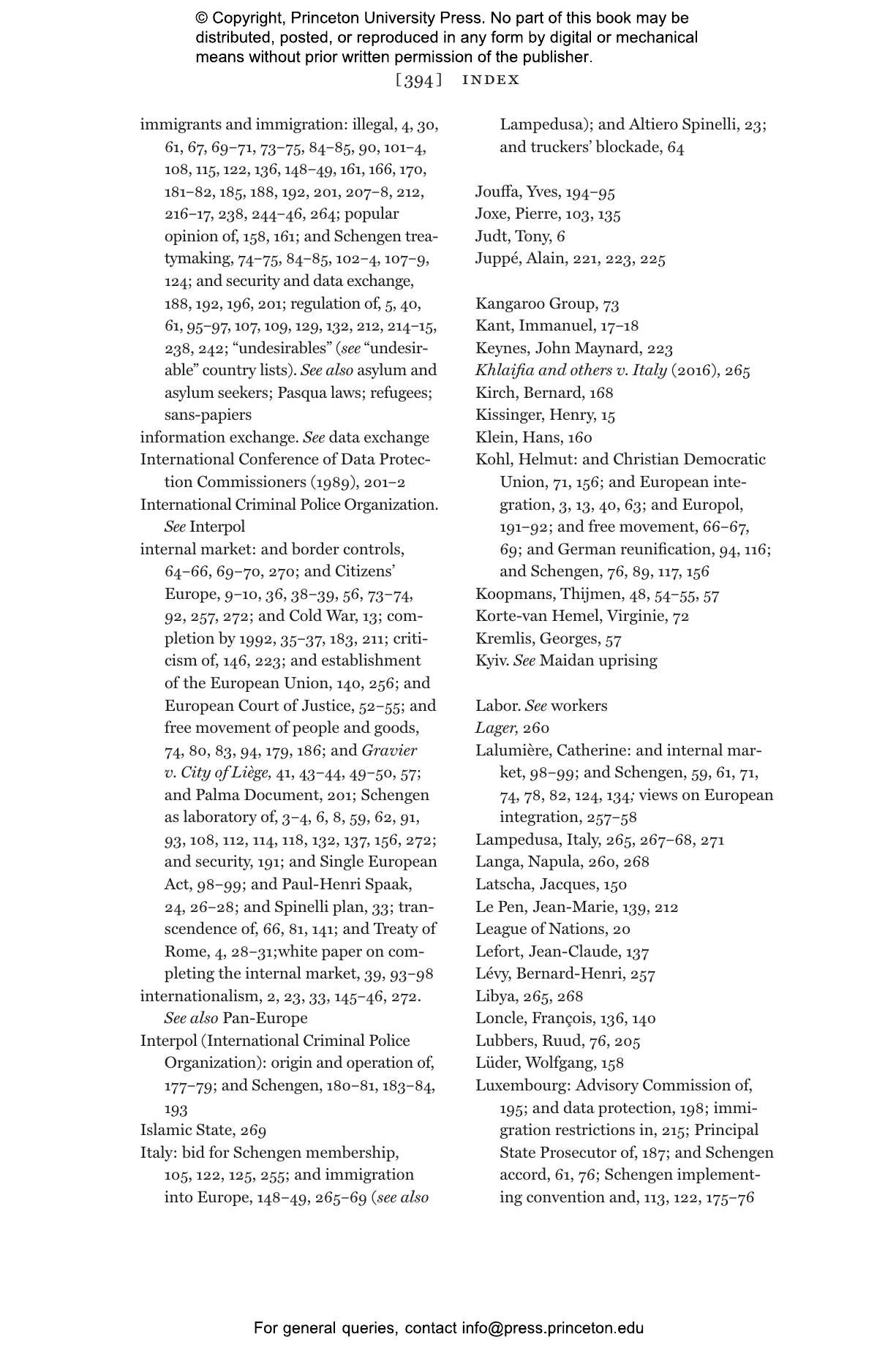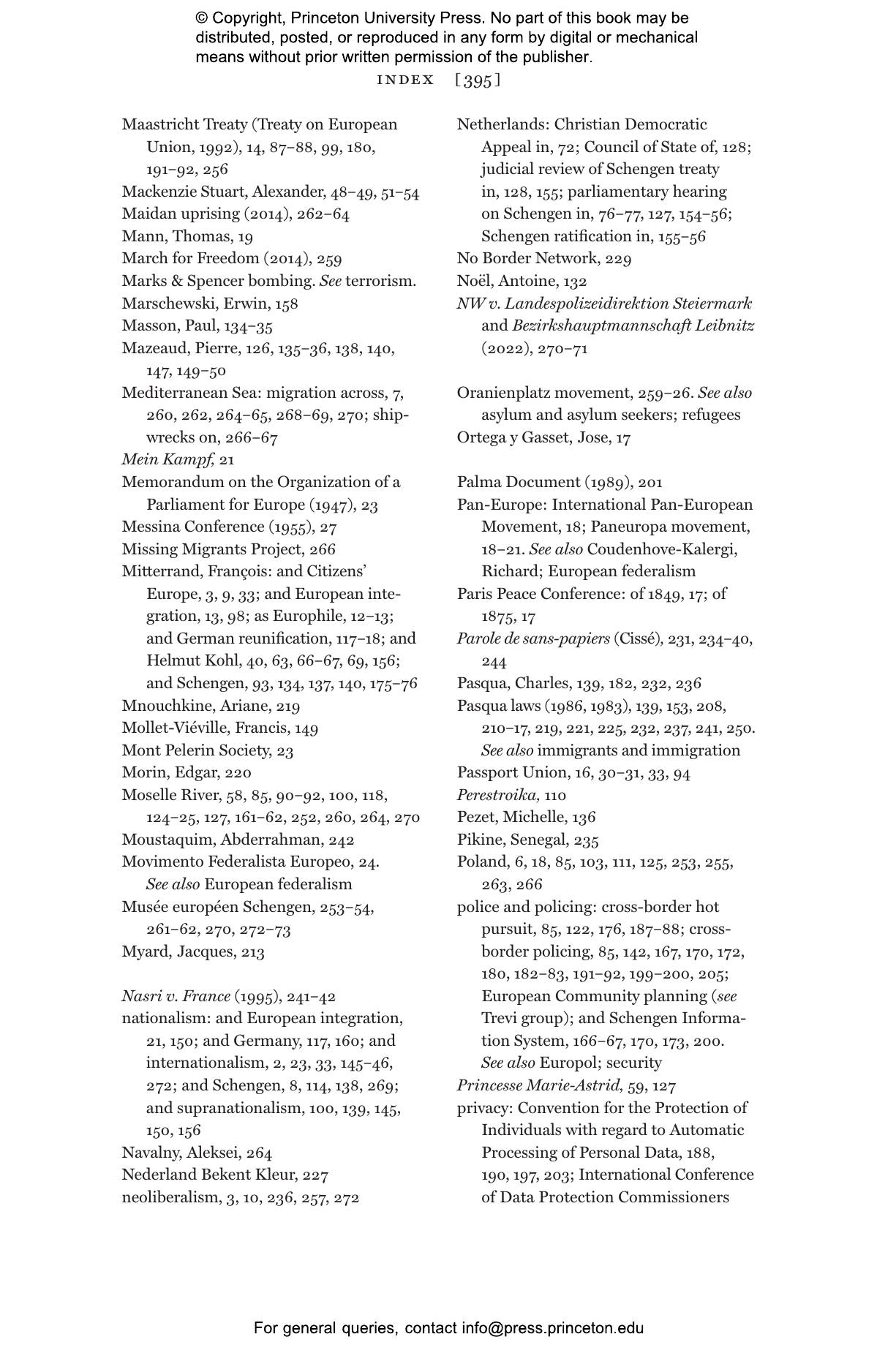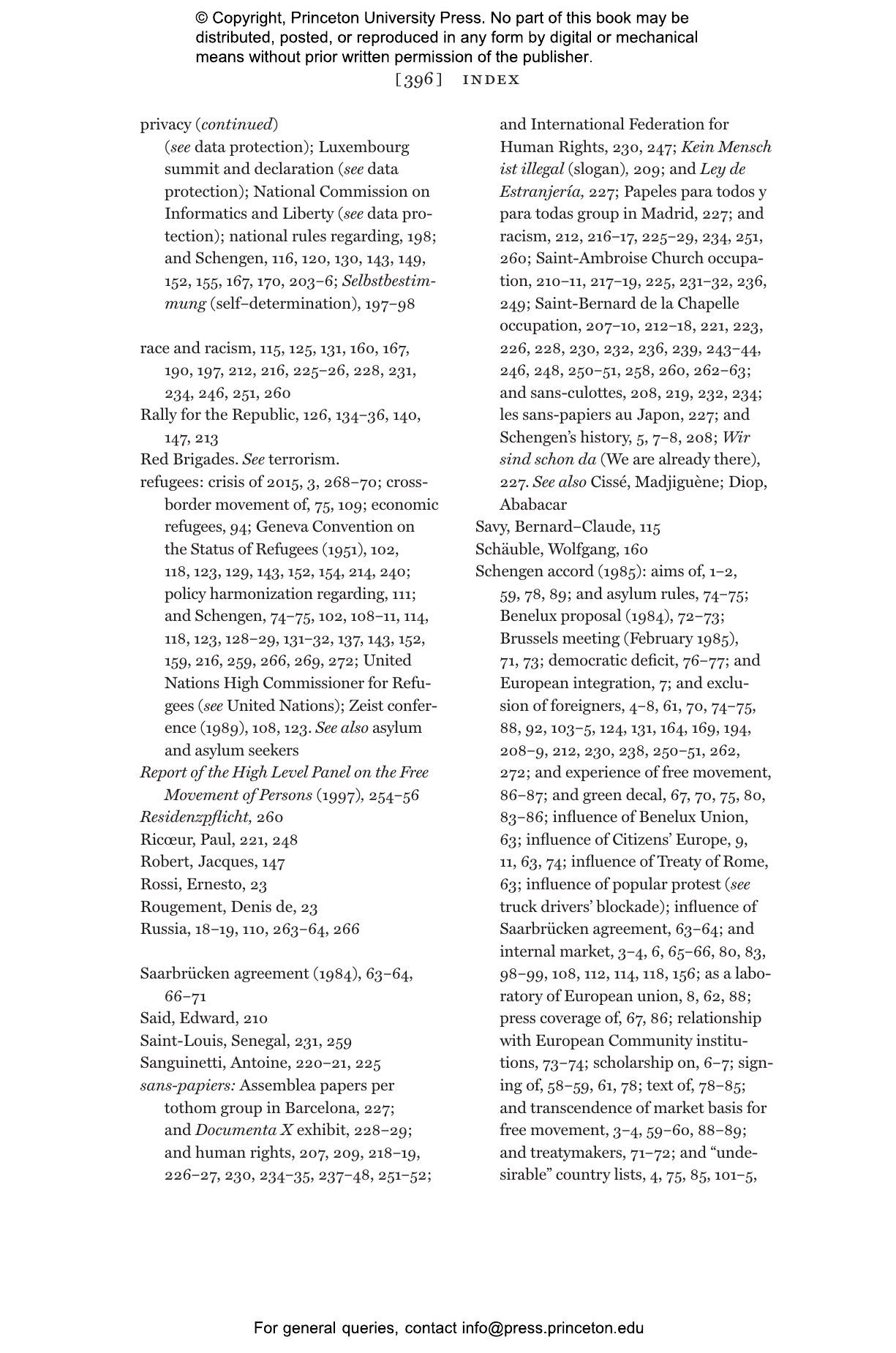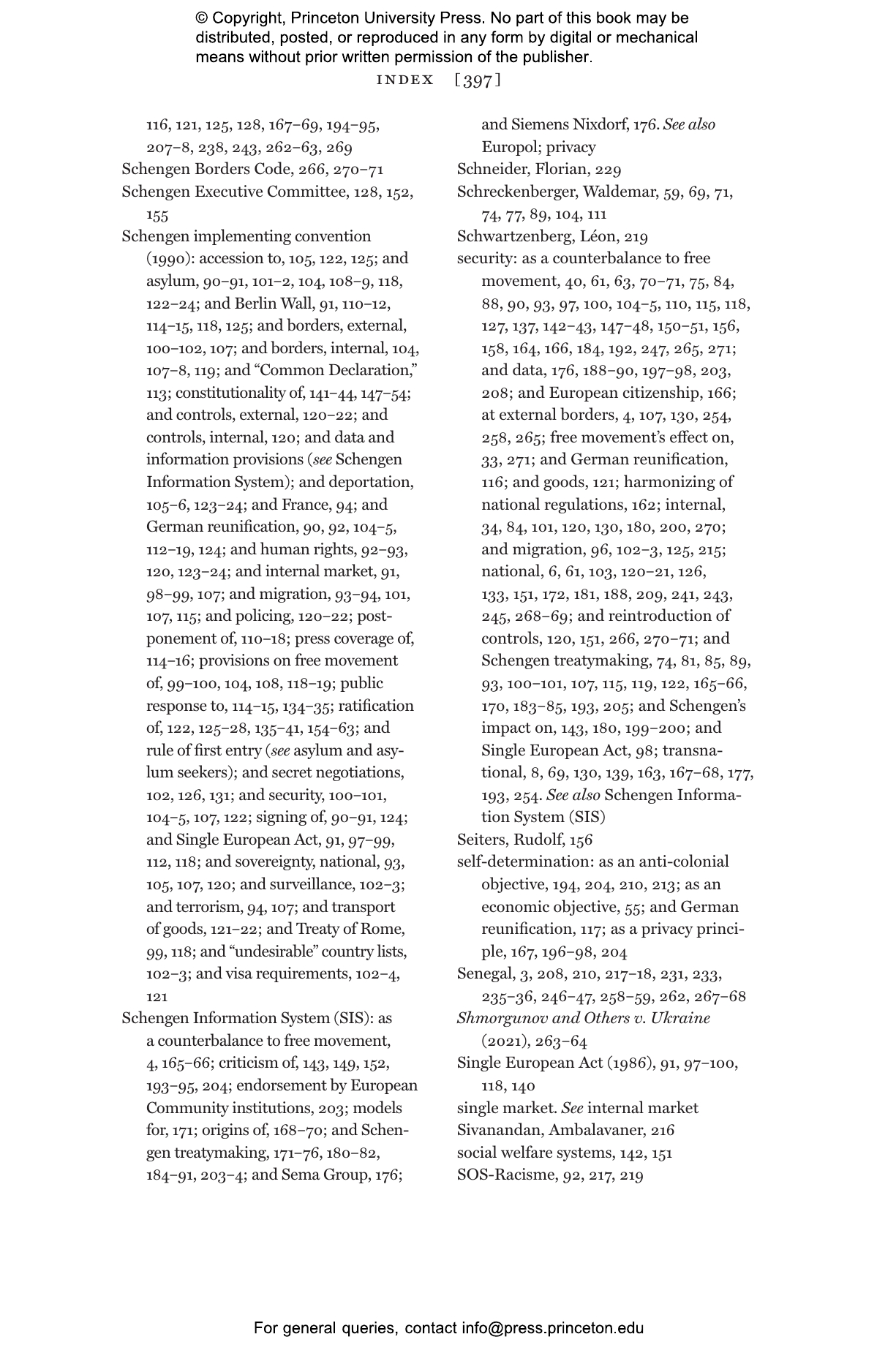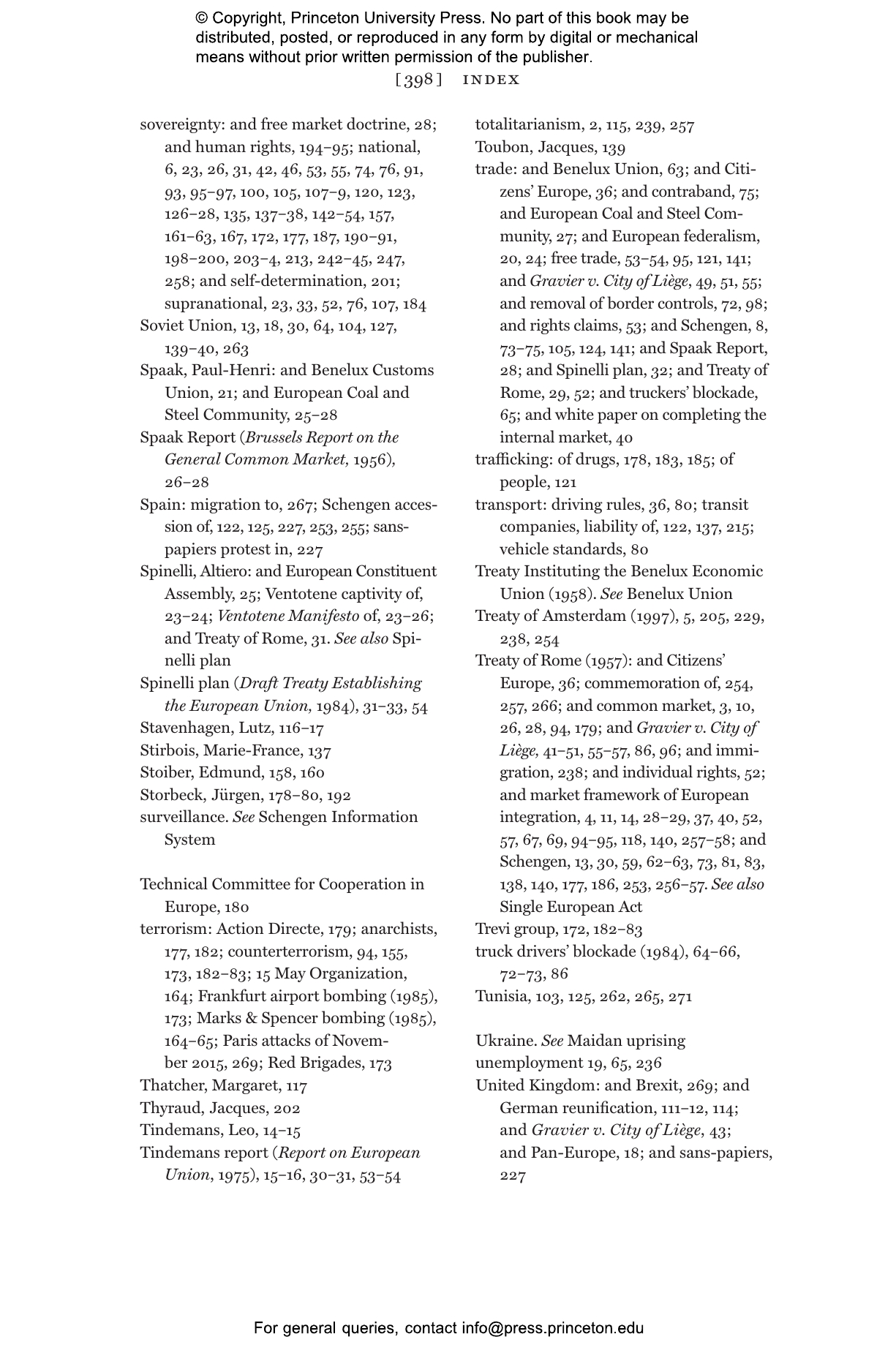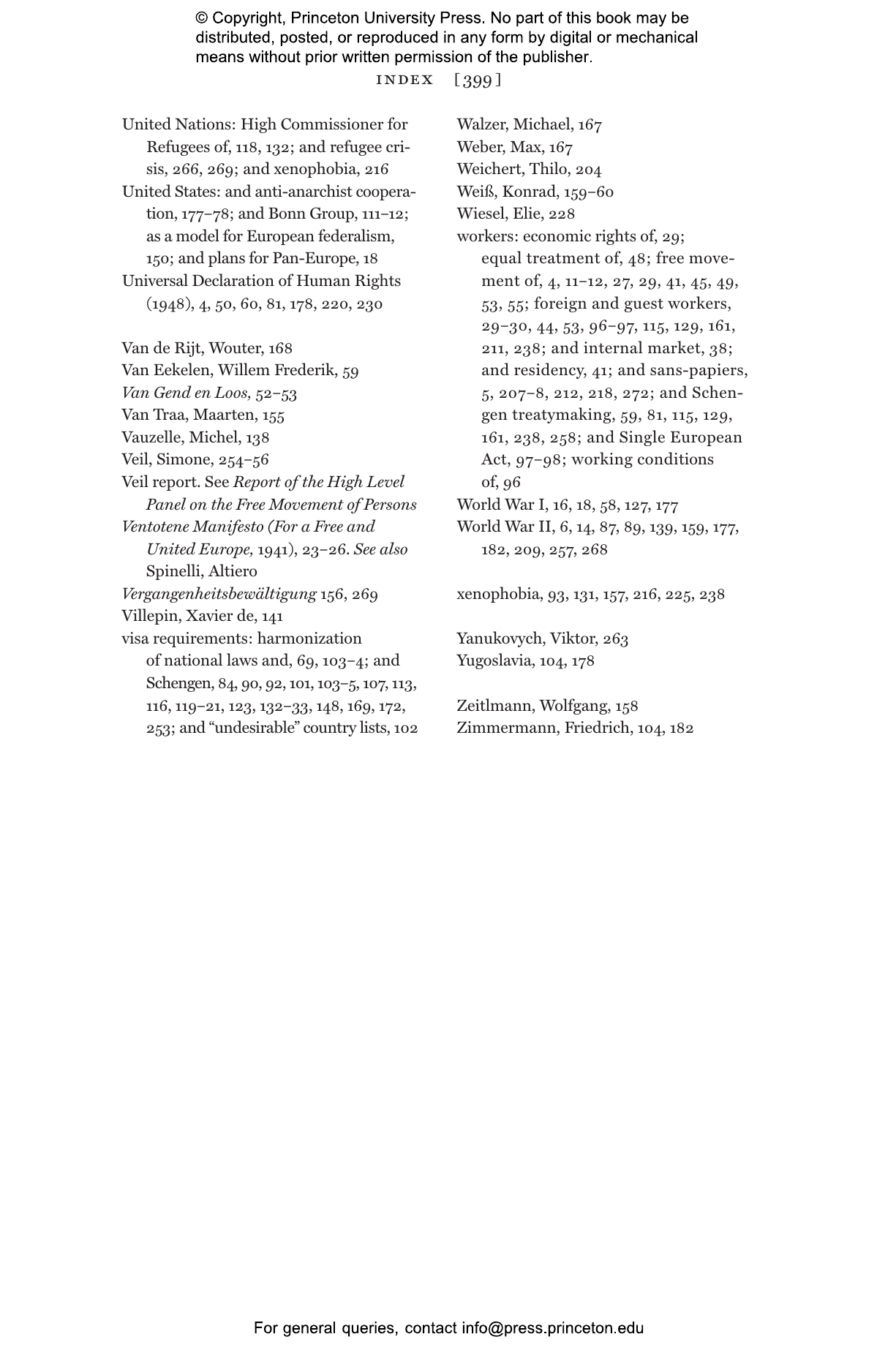Europe is a place of free movement among nations—or is it? The Schengen area, established in 1985 and today encompassing twenty-nine European countries, allows people, goods, and capital to cross borders without restraint. Schengen transformed European life, advancing both a democratic project of transnational citizenship and a neoliberal project of international free trade. But the right of free movement always excluded non-Europeans, especially migrants of color from former colonies of the Schengen states. In Europe without Borders, Isaac Stanley-Becker explores the contested creation of free movement in Schengen, from treatymaking at European summits and disputes in international courts to the street protests of undocumented immigrants who claimed free movement as a human right.
Schengen laid the groundwork for the making of a single market and the founding of the European Union. Yet its emergence is one of the great untold stories of modern European history, one hidden in archives long embargoed. Stanley-Becker is among the first to have access to records of the treatymaking—such as letters between France’s François Mitterrand and West Germany’s Helmut Kohl—and Europe without Borders offers a pathbreaking account of Schengen’s creation. Stanley-Becker argues that Schengen gave a humanist cast to a market paradigm; but even in pairing the border crossing of human beings with the principles of free-market exchange, this vision of free movement was hedged by alarm about foreign migrants. Meanwhile, these migrants—the sans-papiers—saw in the promise of a borderless Europe only a neocolonial enterprise.
“The European Union, the great political experiment of our time, deserves more accounts like this: alive to detail, aware of setting, measured in judgment. An important contemporary history.”—Timothy Snyder, author of On Tyranny: Twenty Lessons from the Twentieth Century
“We have long needed an authoritative account of the origins of the Schengen free travel area, perhaps the single achievement of European integration most valued by the Europeans who benefit from it. Here it is. Isaac Stanley-Becker offers a rigorous analysis based on all the relevant sources, enlivened by vivid sketches of the resulting human reality—for those included, and for those excluded.”—Timothy Garton Ash, author of Homelands: A Personal History of Europe
“Isaac Stanley-Becker has written an incisive, compelling, and humane history that explains how the Schengen treaty enshrined freedom of movement for European nationals while excluding others who contested the restrictions. I cannot think of a better or more measured guide to the issues and the various actors involved in this project. Europe without Borders is altogether a formidable achievement.”—Peter Gatrell, author of The Unsettling of Europe: How Migration Reshaped a Continent
“Europe without Borders takes us into closed-door diplomatic meetings and onto precarious rafts on the Mediterranean to tell a pathbreaking history of the Schengen treaty. Proponents of Schengen, it turns out, hoped to move beyond economic rationales for free movement, but in practice protecting internal freedom led to fortifying external borders, reinscribing free market logics, and collapsing universalism into regional chauvinism. Essential reading, this book speaks to our own contemporary debates over migration, inequality, law, and the European Union, as it unearths how Schengen’s limits and inner contradictions spawned the birth of new social and legal movements that demanded free movement as a universal human right.”—Giuliana Chamedes, University of Wisconsin-Madison
“Stanley-Becker offers an illuminating account of the interconnected political and intellectual origins of the Schengen Area. This deeply-researched analysis challenges the myths that accompanied the end of border checkpoints in part of Europe, and reveals the contradictions inherent in an agreement meant to provide freedom of movement to some people while restricting it for others. This is international contemporary history at its finest, for it explains an era and an agreement with important implications for today’s world.”—Timothy Andrews Sayle, author of Enduring Alliance: A History of NATO and the Postwar Global Order
“Europe without Borders is a meticulous investigation of an underestimated innovation that has transformed not just the legal framework but also the daily life of many Europeans. Based upon government records in the signatory states and personal papers of the key figures as well as media and intellectual commentary, the text offers a detailed reconstruction of the major steps in the establishment of the Schengen Zone. Moreover, the book also addresses the difficulties of maintaining free movement in the face of immigration pressure.”—Konrad H. Jarausch, author of Embattled Europe: A Progressive Alternative
“In this compelling book, Stanley-Becker illuminates the internal contradictions of the Schengen border regime, human mobility, and social belonging in contemporary Europe. Extensively researched and elegantly argued, Europe without Borders lays bare how a concerted effort in the 1980s to turn united Europe into something more than just a free trade zone ultimately undermined democratic decision-making and also fueled new modes of racist exclusion in today’s EU.”—Emily Marker, Rutgers University



